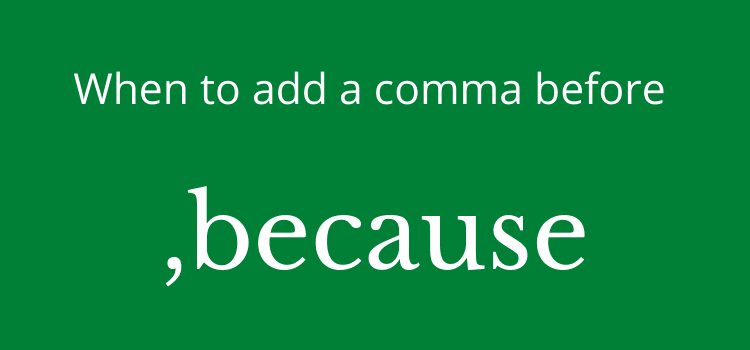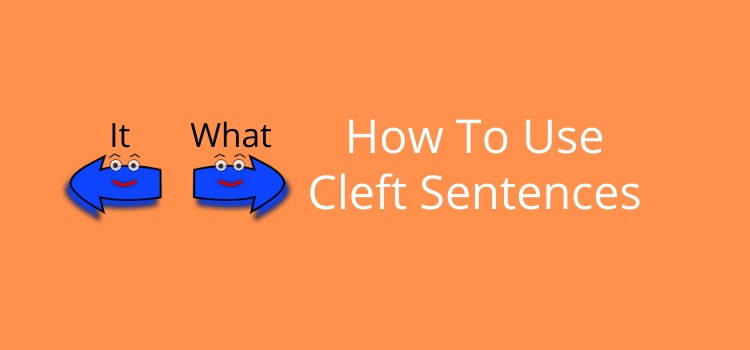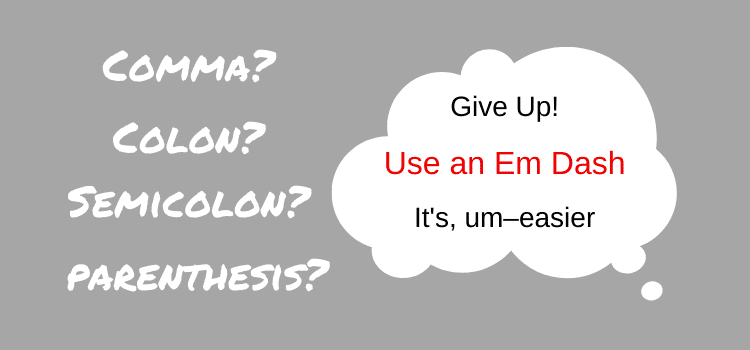
In general, you don’t use a comma before because, in most sentences. When you add a second clause to a sentence starting with because the meaning is usually quite clear.
You are explaining the reason why something happened in the first clause. For example, I’m always hungry now because I’m on a strict diet.
Of course, if you start a sentence with because there is no comma either. Because I’m on a strict diet, I’m always hungry now.
But there are times when you need to think about using a comma.
No comma before because
Almost all sentences you write with because consist of a main independent clause followed by a subordinate clause.
For example, I got soaking wet.
It is an independent clause as it can stand by itself.
If you want to add a reason, you add the subordinate clause that can not stand by itself.
Because I forgot my umbrella.
The two clauses combined create logical sentences.
I got soaking wet because I forgot my umbrella.
Tom went to the dentist because he had a toothache.
She bought a new phone because it was discounted.
When you use this structure, you don’t need to insert a comma between the two clauses.
The comma before because following negative clauses
The only time you need to consider using a comma is when the first clause includes a negative verb.
The most common verbs are don’t, didn’t, doesn’t, couldn’t, or wouldn’t.
When the first clause uses any of these verbs, it can create ambiguity or confusion about the meaning of the sentence.
Many style guides, including the CMOS, recommend adding a comma that is supposed to help clarify the implied meaning.

In this sentence above, the comma indicates the particular reason was that the sofa was green and not because of the price or size.
But even with this punctuation, a sentence like this can still be unclear for a reader.
Here are some examples to help you recognize the problems that can occur.
John didn’t get elected, because of his stance on crime.
It is unclear if John was elected or not. Perhaps he did get elected based on his economic policy. Then again, maybe he wasn’t elected as voters didn’t like his ideas on crime.
Mary couldn’t attend the meeting, because of a traffic jam.
The sentence gives a sense that there may have been another reason. Perhaps it was because she was ill.
Claude doesn’t work, because of the salary.
Perhaps Claude does work despite the salary and loves his job or is committed to a cause.
In these examples, inserting a comma might be the correct option.
However, it is not always the best way to get your message across without any confusion.
A better way to write a because sentence
Whenever you see a sentence that you think is unclear, it’s often best to rewrite, rearrange or add more information.
If I take the examples above, there are always quick and easy possibilities to avoid any misunderstanding.
John didn’t get elected because of his stance on crime but because of his economic policies.
Now it’s clear that he was elected and why.
John didn’t get elected because of his stance on crime, which alienated many voters.
This makes it clear that John was not elected.
Mary couldn’t attend the meeting because of a traffic jam, but because she missed her flight.
This sentence is reasonably clear in its original form. But adding extra information can help.
Mary couldn’t attend the meeting because she was stuck for hours in a traffic jam.
Defining the reason here with a subject and verb in the subordinate clause makes more sense.
Claude doesn’t work because of the salary. He works because he loves helping people.
Now it’s clear that Claude works.
Claude doesn’t work because of the salary. It was less than his social security payment, so he decided to quit the job.
Adding more information clarifies that Claude doesn’t work any longer.
Good writing is about clarity
The easiest way to get around this pesky little grammar and punctuation problem is to avoid it.
All you need to do is use positive verbs in your first main clause, and then you can happily use because without a comma.
To use my examples again, here they are without needing any rewriting or commas.
John was elected because of his economic policies and not his stance on crime.
Mary failed to attend the meeting because she missed her flight.
Claude works because he loves helping people, despite the low salary.
Conclusion
Little grammar points like this one can be frustrating for new and not-so-new writers alike.
Sometimes it’s easy to think that it’s impossible to know every single one, and you are right.
No matter how experienced you are as a writer, there will always be elements you are unsure about.
The only way to learn is to do your grammar research. Sure, you can certainly use a good grammar checker to help you.
Most of the time, this will help you spot an error and help you understand how to fix it. But it’s not always the case.
Sometimes you have to dig a bit deeper and try to find a way around a writing problem. Very often, rewriting a sentence a few times is the best way.
Then look at which one you think your readers will be able to understand best without any ambiguity.
Related reading: Use The Comma Before And In A List Avoids Misunderstandings




Thanks. This BC was very informative.
Thanks for this reminder phrased so clearly.